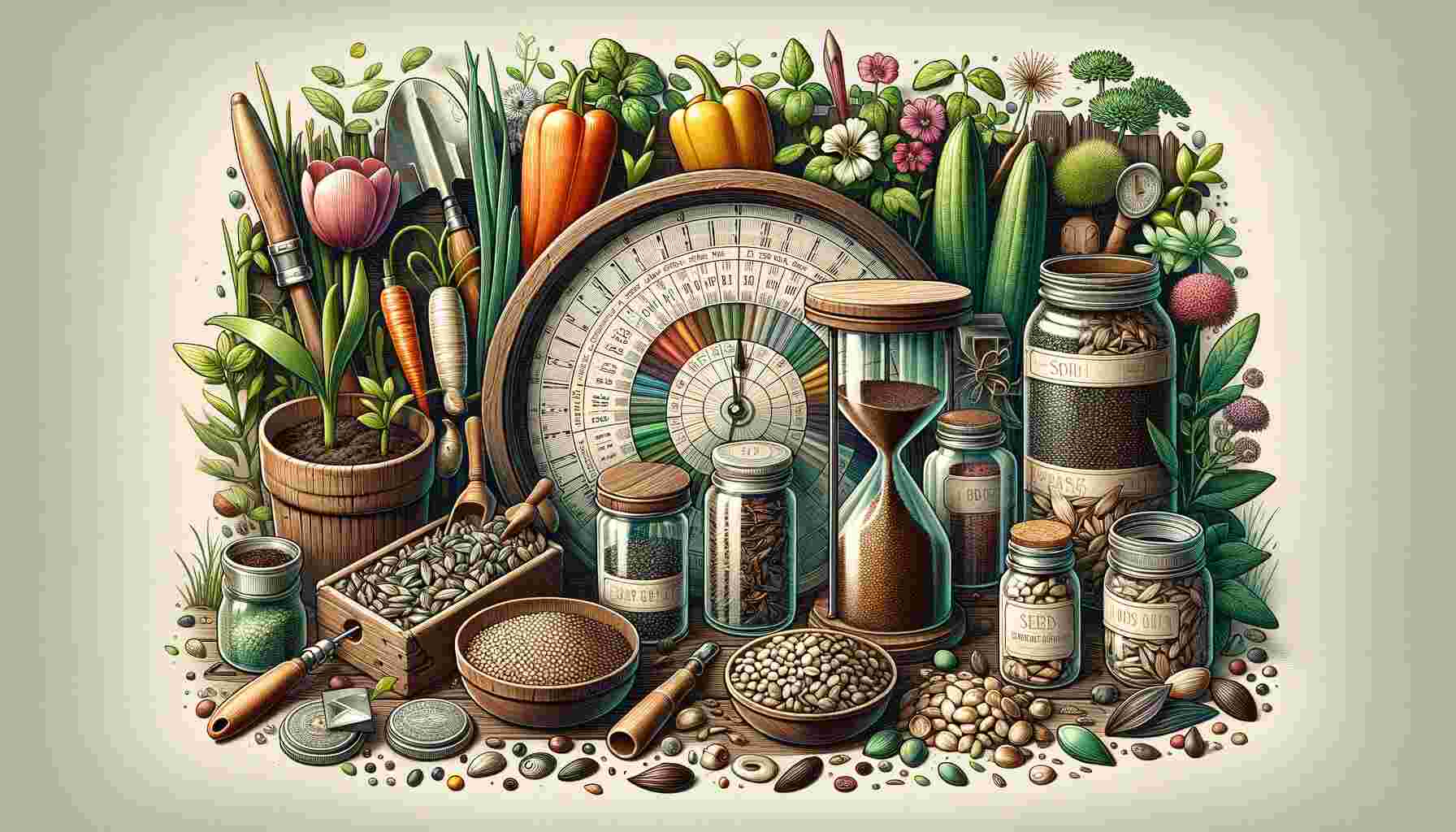Seeds are like little bundles of life, holding the promise of beautiful plants and tasty harvests. Do gardening seeds go bad?
Well, the answer is yes, gardening seeds can indeed go bad over time. As seeds age, they lose their ability to sprout and grow into healthy plants. Various factors like the type of seed, how you store them, and their overall quality play a role in determining how long they’ll last.
To make the most of your gardening experience, it’s important to understand when seeds go bad, what affects their lifespan, and how to store them properly.
Understanding Seed Expiration
Seeds, just like all living things, have a finite lifespan. Seed expiration is the point at which seeds lose their ability to germinate and grow into healthy plants. In simpler terms, it’s when they can’t sprout anymore.
Factors Affecting Seed Longevity
The longevity of seeds depends on various factors:
- Seed Type: Different types of seeds have different lifespans. Some veggies may not last as long as flowers or trees, so it’s important to consider the specific type of seed you’re working with.
- Storage Conditions: How you store your seeds matters a lot. Things like temperature, humidity, and exposure to light can speed up their deterioration. To keep them fresh, you need to store them in optimal conditions.
- Seed Age and Quality: As seeds get older, they naturally lose their viability. Plus, the quality of the seed when you get it or collect it can also affect how long it will last. Damaged or diseased seeds won’t have a long life.
Signs of Expired Seeds
To tell if your seeds have gone bad, watch out for these signs:
- Discoloration: Expired seeds may look dull or faded, losing their vibrant color.
- Fragility: They become brittle and can easily break or crumble.
- Damaged Seed Coat: The outer protective layer might be cracked or damaged.
Conducting a germination test is a reliable way to check if your seeds are still good. It involves creating the right conditions to see if the seeds sprout. If only a few of them do, it’s a sign that they might be past their prime.
Storage Techniques for Prolonging Seed Life
Proper storage is key to making your seeds last longer. Here are some tips:
- Use airtight containers to keep moisture out.
- Store them in a cool, dry, and dark place.
- Control humidity levels – aim for 30% to 40%.
- Label containers with seed type and storage date.
- Avoid temperature fluctuations, as they can harm seeds.
- Periodically test seed viability to ensure they’re still good.
Enhancing Seed Viability
If you have older or less viable seeds, there are methods to boost their chances of sprouting:
- Scarification: Some seeds have tough outer shells, so scratching or soaking them can help.
- Stratification: For certain seeds, mimic winter conditions to break dormancy.
- Soaking: Soaking seeds before planting can soften the coat and speed up germination.
- Harvest seeds at the right time, clean them thoroughly, and let them air dry naturally to prevent mold or rot.
Seed Viability Statistics
These statistics can vary based on the type of seed, but they provide valuable insights into the shelf life of gardening seeds:
- Tomato seeds: On average, tomato seeds can remain viable for 3-5 years when stored correctly.
- Bean seeds: Bean seeds generally have a longer lifespan and can stay viable for 5-7 years.
- Pepper seeds: Pepper seeds, if properly stored, can maintain their viability for 2-4 years.
- Flower seeds: Many flower seeds can remain viable for up to 2-3 years under optimal storage conditions.
Please note that these statistics are approximate and can vary depending on specific circumstances.
Practical Tips
Now, let’s move on to practical tips for gardeners to maximize the lifespan of their seeds:
Conducting a Germination Test:
- Gather a sample of seeds: Take a representative sample of the seeds you want to test. A sample size of 10 to 20 seeds is usually sufficient.
- Prepare a suitable environment: Create an ideal environment for germination. This typically involves using a moist paper towel, a plastic bag, and a warm location.
- Place the seeds in the environment: Arrange the seeds on the moist paper towel and fold it over to cover them. Put the paper towel with seeds inside the plastic bag, leaving it slightly open for air circulation.
- Monitor germination progress: Check the seeds regularly to observe if and when they sprout. After a designated period (usually 7 to 14 days), count the number of seeds that have successfully germinated.
- Interpret the results: Calculate the germination rate by dividing the number of germinated seeds by the total number of seeds tested. This percentage will give you an idea of the seed viability. If the germination rate is low, it indicates a higher likelihood of expired seeds.
Common Misconceptions
There are a few common misconceptions about seed expiration:
- “Seeds last forever”: They don’t. Different seeds have different lifespans.
- “Expired seeds won’t sprout”: They might still sprout, just with lower odds.
- “All seeds have the same expiration date”: Nope, it varies by seed type.
- “Seeds must be fresh to germinate”: Older seeds can germinate with the right care.
Conclusion
In the end, yes, seeds do expire, but with knowledge and proper care, you can extend their lifespan. Pay attention to their specific needs, store them well, and don’t give up on older seeds too soon. Happy gardening!










